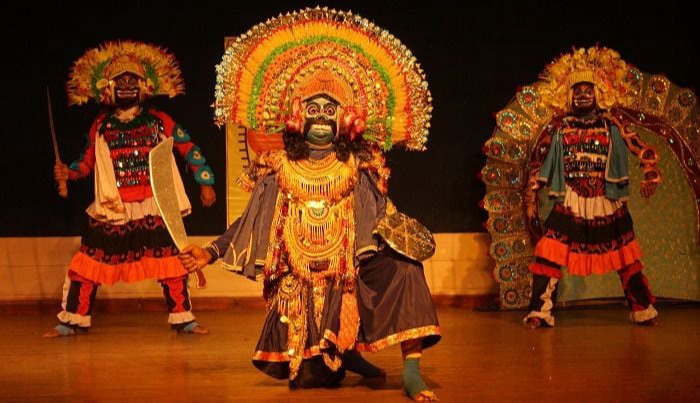Gombhira: A Unique Folk Culture of Malda


Introduction- Gombhira is a distinctive form of folk culture rooted in the district of Malda, West Bengal. This traditional art form, known for its musical and theatrical presentations, holds a special place in the hearts of the local people. It is celebrated for its unique way of expressing the joys and sorrows of everyday life, as well as addressing national and international issues.
Origins and Evolution- Gombhira originated in the Malda district and has evolved over centuries. Initially, it was a devotional practice dedicated to Lord Shiva, with performances typically taking place during the Charak festival. Over time, it transformed into a more secular form of entertainment and social commentary.
Themes and Content- The themes of Gombhira are diverse, ranging from daily life struggles, social issues, and political satire to celebrations of local traditions and cultural heritage. The performances often incorporate humor, satire, and wit, making them both entertaining and thought-provoking.
Structure and Performance- A typical Gombhira performance involves two main characters: a grandfather (dadu) and his grandson (nati). Through their dialogues, songs, and dances, they discuss various issues, presenting a mix of serious reflections and light-hearted banter. The format allows for a flexible and dynamic interaction with the audience, who often participate and engage with the performers.
Music and Instruments- The music in Gombhira is characterized by lively tunes and rhythms. Traditional instruments such as the dhol (drum), harmonium, and kartal (cymbals) are commonly used. The songs are usually in the local dialect, making them accessible and relatable to the audience.
Social and Cultural Significance- Gombhira plays a vital role in preserving the cultural heritage of Malda. It is a medium through which the community reflects on its values, challenges, and aspirations. The performances serve as a platform for raising awareness about social issues and fostering a sense of unity and identity among the people.
Contemporary Relevance- In modern times, Gombhira continues to thrive, adapting to contemporary themes and issues. Performers now address topics like environmental conservation, health awareness, and global politics, ensuring that the tradition remains relevant and engaging for new generations.
Festivals and Celebrations- Gombhira is an integral part of local festivals and celebrations in Malda. The most notable is the Charak festival, where elaborate Gombhira performances attract large crowds. These events are not only a source of entertainment but also a celebration of the district's rich cultural heritage.
Preservation Efforts- Efforts are being made to preserve and promote Gombhira through various initiatives, including government support, cultural organizations, and community groups. Workshops, competitions, and documentation projects aim to ensure that this unique folk culture continues to flourish and inspire future generations.
Languages Spoken in Malda- Malda, located in the Malda District of West Bengal, is a linguistically diverse city. The primary languages spoken here are Bengali, Hindi, and English. Additionally, many residents speak Maithili, Rajbangsi, and Urdu.
People and Religions- According to the 2011 official census and the 2024 population data, Muslims are the majority in Malda district. The total population of Malda district was recorded as 3,988,845 in the 2011 census, with Muslims making up 51.27% of the population.
HTML Website Maker